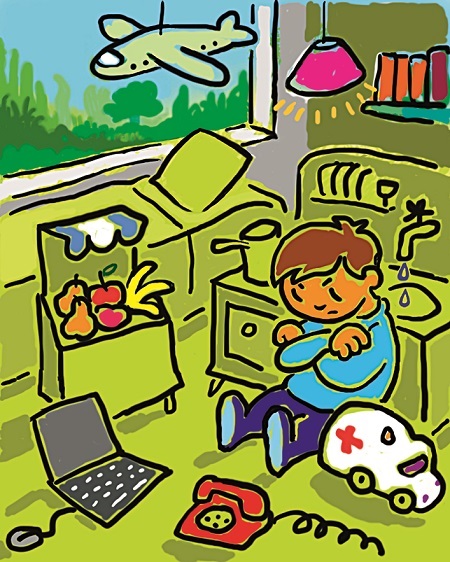
I trigger the switch and the light turns on. I open the tap and water comes out. Stores have everything: clothes, food, books and cars. I wait at the stop and the bus arrives. Or the subway, the train or the tram. Planes move me anywhere in the world, no matter how I get sick and I am immediately taken to the hospital, where I am taken care of. Internet makes me a world citizen. Today all this seems normal to us, the minimum framework that welcomes us every day as we get out of bed. But it is actually exceptional.
When I was a boy, there were no phones. Almost no one had one. Those who used business cards included the phone number of the nearest shop or some wealthy and condescending neighbor and clarified, between parentheses, «requested». You had to ask for a «conference call» to talk people from the next town. Calling to Valencia from Barcelona was a commented event, it was unbelievable for grandmothers. Everything through an operator, of course, and with delays of several hours, sometimes even a whole day. Mobile phones were unthinkable and smartphones could not be found even in science fiction stories.
Our first phone number, in the mid-fifties, had six figures: it was 262962. Earlier, they had only five. The 90,000 possible combinations sufficed (99,999 minus the earlier 9,999, just four-digits long). Now, in every country in Europe nine hundred million combinations (999,999,999 minus 99,999,999) are possible. It seems we will never need to extend the number again, but I would not put would not stake my life on it…
«The extraordinary things we have are seen as irrelevant platitudes, pushing us towards the complains of a small child»
All this happened in a short time. The evolution of the phone is recent, part of my personal memories, but running water or electricity in our homes are not much older either. At least in villages, the great-grandparents of those of us who are now grandparents lived almost as the Romans. To reach their standard of living, the whole history of (more or less) civilized humanity was necessary, say fifty or a hundred thousand years; in the last two hundred, it is at least tenfold. In any case, the cumulative effort of thousands of generations has been necessary to get where we are now. I think most people do not realize it enough.
The industrial and capitalist model has got out of hand; many of us think as much. But this is a different issue. Like many people – among whom I count myself – remind us, we should also emphasize the other side of the coin: as a group, we have taken advantage of the journey. It was not so much an issue of the socio-economic model as one of civilizing momentum. We have accumulated a prodigious compendium of techno-scientific achievements in the service of a social structure that basically works, with all its many little defects. That is why there are hospitals taking care of most of their patients with remarkable success, deleterious epidemics have practically stopped and we enjoy a double food security we had never seen before: guaranteed supply and sanitation in food (despite the excess of additives, regrettable tastelessness or suspicious GM foods). We have first-world food emergencies: no hunger or spoiled food disguised with too many spices…
Not everywhere, however. Asymmetries are established among the unforgivable ethical weaknesses of the system. In the West, the indifference to which the population rises every morning makes it even more poignant. The extraordinary things we have are seen as irrelevant platitudes, pushing us towards the complains of a small child. Without abandoning criticism, epistemological effort and renewing action, we should cultivate thankfulness: we owe much to those who came before. Industrial civilization, no less…





